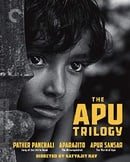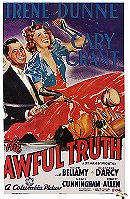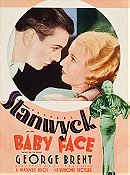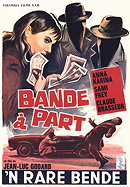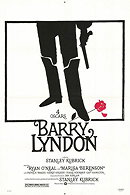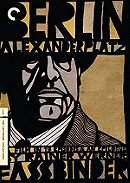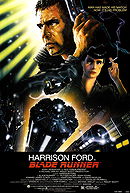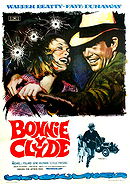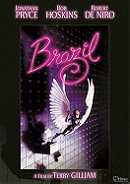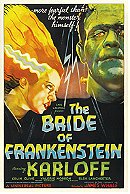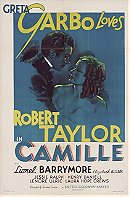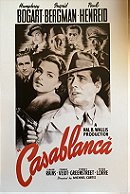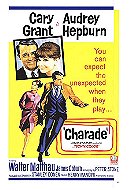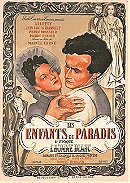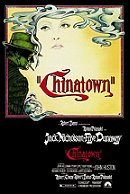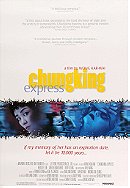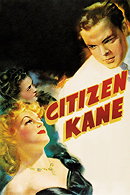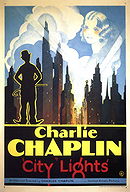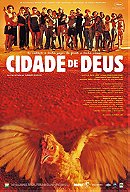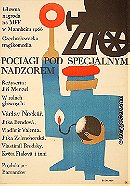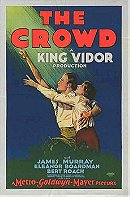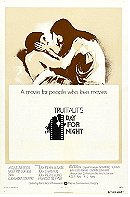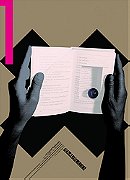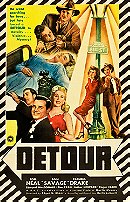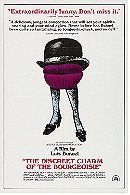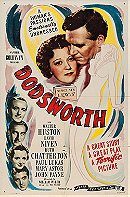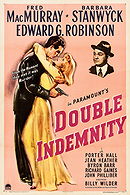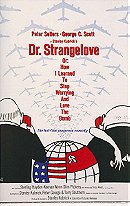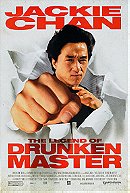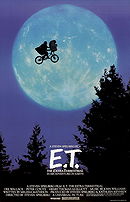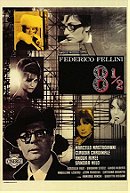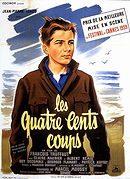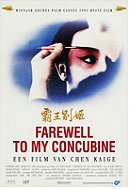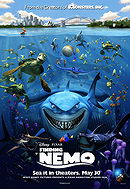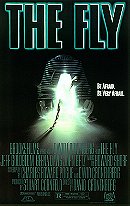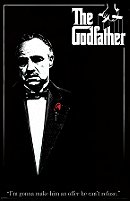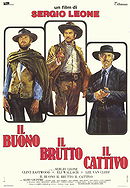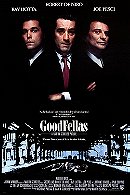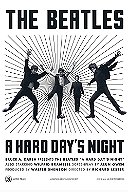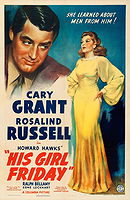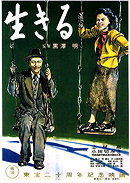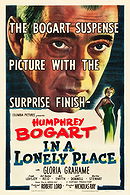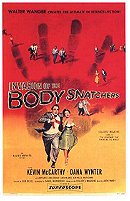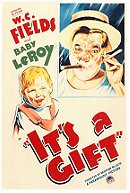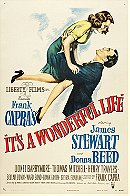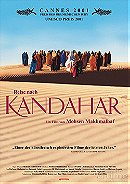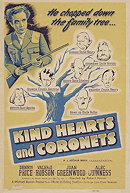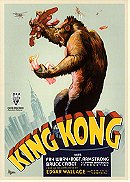TIME's 100 Greatest Movies
Sort by:
Showing 1-50 of 100
Decade:
Rating:
List Type:
 Add items to section
Add items to section
A – C
TIME magazine's 100 Greatest All-Time Movies. The original list was presented in alphabetical order, and that is preserved here. This is NOT how they are ranked, merely how they are presented. I have also included the original abstracts for each movie as a note. TIME critics Richard Corliss and Richard Schickel compiled the list and wrote the abstracts.
Novels
Albums
Guilty Pleasures
Performances
Graphic Novels
Novels
Albums
Guilty Pleasures
Performances
Graphic Novels
Aguirre: The Wrath of God (1972)
"The 70s established Herzog as the most defiantly visionary of directors. In Every Man for Himself (And God Against All), Heart of Glass, Nosferatu the Vampire and his amazing documentary about the Guadeloupean volcano La Soufriere, he created worlds beyond civilization, whose ravishing beauty could drive intruders mad. Who better to play the overweening man, intoxicated to the point of insanity, than Klaus Kinski, Herzog's house demon? (Herzog made a fascinating documentary, the 1998 My Best Fiend, about his hectic relationship with the actor.) Aguirre is the prototype Herzog-Kinski collaboration, about a Spanish explorer who loses his mission, men and mind on an Amazon adventure. Answering only to the logic of Peru's natural beauty, the film seems an examination of madness from the inside. Sumptuous, spellbinding and immediately, eternally scary. —R.C."
JxSxPx's rating:


The Apu Trilogy (2015)
"The story of a child growing to manhood in modern India. His triumphs are small, his tragedies large, but Ray's filmmaking is direct in manner, simple in its means and profound in its impact. It is, as another great master, Akira Kurosawa, said, "the kind of cinema that flows with the serenity and nobility of a big river"—the river of life as it is ordinarily lived.—R.S."
"A divorcing couple (Cary Grant and Irene Dunne) squabble delightfully about custody of their dog, her lamebrained suitor (Ralph Bellamy), his waywardness and her career in what may be the most perfect romantic comedy ever made. TIME judged it "the gayest screen comedy the season has seen," but these sly and ironic people are men and women for all seasons.—R.S."
JxSxPx's rating:


Baby Face (1933)
"In four fabulous years before a strict Motion Picture Code put the cap on audacity, Warner Bros. produced a garish gallery of rude, saucy films. Tough guys used guns and grapefruit to commandeer the urban nightscape; dames like Dorothy Mackaill and the young Bette Davis lured men to a heavenly Hades. But no actor was as tough as Barbara Stanwyck, and no actress used womanly wiles with an intelligence so cool and cutting. In this invigorating affront of a movie, dreamed up by Warners' departing production chief Darryl Zanuck, Lily (Stanwyck) escapes to New York from an Erie, Pa., speakeasy where her father has rented her out to the customers. In a big-city bank, she sleeps her way to the top, leaving a heap of discarded men (and one or two corpses). Even in a version pruned for the New York state censors, Baby Face was the definitive pre-Code statement of how the Depression created a new morality of no morality. Now the missing five minutes have been restored, and we see how the movie snarled every bit as brazenly as Stanwyck did. —R.C."
JxSxPx's rating:


Band of Outsiders (1964)
"Ennui, anarchy and jump cuts—that was Godard at his influential best in the 60s. And this film, about some slackers who drop out of a dubious language school and retreat to the suburbs for a lazy frolic that turns into absurdist murder, is among his most weirdly entertaining efforts to rewrite not just the grammar of cinema, but its ruling narrative conventions as well.—R.S."
JxSxPx's rating:


Barry Lyndon (1965)
"The director dreamed of telling stories entirely through images, and in this extraordinarily beautiful existentialist anti-epic he came close to realizing that goal. In 18th century England his eponymous protagonist peers into the candle-lit dimness of stately homes, seeking clues to correct behavior. He learns enough to rise in society, but not enough to prevent his fall. In its cover story, TIME, almost alone, predicted history would judge the film a masterpiece. Thirty years later, history is beginning to agree.—R.S."
JxSxPx's rating:


'"Genius or madman?" That question was often flung Fassbinder's way, back in the 70s when the Munich Wunder-brat was leading German cinema to its first great period since the Weimar years. The answer is not ours to provide. What's certain, whatever his eccentricities and cruelties, is that he had the focus to write and direct 40-some coruscating melodramas in a 13-year blast of creative energy that drew equal inspiration from Germany's political past and Hollywood's Golden Age. His biggest film, likely his masterpiece, is this 15-1/2 hr. made-for-TV adaptation of Alfred Döblin's 1929 novel, which had thrilled Fassbinder since his teen years. In the lumpen figure of Franz Biberkopf (Günter Lamprecht), the filmmaker found a passive, pathetic non-hero around whom dozens of predators and victims could swarm. If you're looking for a Fassbinder starter set, try The Bitter Tears of Petra von Kant or Martha or Ali: Fear Eats the Soul or The Marriage of Maria Braun. But I suggest you rise to the challenge. Put a weekend aside to savor the director in full fester. What may seem like an ordeal will end in enthrallment. -R.C."
Blade Runner (1982)
"Coming off the success of his grunge-horror-screaming-in-space movie Alien, Scott was given $30 million to put the dystopic future on film. The result was a commercial flop, and one of the most influential, densely designed visions ever made. Based on Philip K. Dick's s-f novel Do Androids Dream of Electric Sheep, Blade Runner is set in the year 2019, in a big city that suggests a Tokyo gone daft. Androids (like the ones played by Rutger Hauer, Sean Young and Darryl Hannah) are so evolved they think they're human. They need a 1940s-style cop (Harrison Ford) to put a bullet through their delusion. Narrative drive and graphic ingenuity combine to create a compelling fantasy world, a disturbing future as near to us as our nightmares. —R.C."
JxSxPx's rating:


"Two beautiful idiots (Warren Beatty and Faye Dunaway) find love, death and rollicking good humor as backroads bank robbers in 1930s America. And telling the story of their petty, bloody crime wave, director Arthur Penn creates a film that is both a signature work of its era (the troubled 60s) and one that is as joyously entrancing now as it was the day it was released. TIME (Aug 25, 1967) originally dismissed the film's "sheer, tasteless aimlessness" but in December of that year made it the centerpiece of its cover story on "The Shock of Freedom in Films" and praised it for "the irony that weds laughter and horror, belly laughs and bullets in the face of life and death."—R.S."
JxSxPx's rating:


Brazil (1985)
"The machinery of repression never clattered with such goofy efficiency, never crushed a naive soul with such Rube Goldberg ruthlessness, as in Gilliam's complex comic fantasia. A mild-minded bureaucrat (Jonathan Pryce) gets run through a police state's inner workings, like Charlie Chaplin in Modern Times, while being manipulated by an insurgent (Robert De Niro) who flies into his life like a deranged Douglas Fairbanks. Gilliam, the Monty Python animator whose script here had contributions from Tom Stoppard, makes unique films —madly, cannily extravagant, with a tone as dark as Jonathan Swift's —which may one reason he gets to make so few of them. This satire of totalitarianism came out the year after 1984, and almost didn't surface at all, in anything like its maker's version. (A happy ending for a Terry Gilliam film? Now who's mad?) A public brawl with Universal Studios resulted in the film's liberation. Thus DVD connoisseurs can savor the director's capacious vision of post-industrial hell: part futurist, part retro and, for any office worker close to despair, very Right Now. —R.C."
JxSxPx's rating:


The Bride of Frankenstein (1935)
"At first glance TIME called it "fully the equal of the original." It was wrong; this is one of those rare sequels that is infinitely superior to its source. Boris Karloff is a perfect klutz as the monstrously eager lover of Elsa Lanchester, whose creator, the divinely hysterical Colin Clive, endowed her with virginity and attitude. It is a perfect little masterpiece of high camp, not untouched by pity, terror and the desire to satirize boy-girl romances.—R.S"
JxSxPx's rating:


Camille (1936)
"From the moment she went before the MGM cameras, at 19, Greta Garbo was the "older woman." Her body spoke of a connoisseur's awareness of sexual experience; the weight of that knowledge made her gleaming shoulders slump. When she played Dumas fils' "Lady of the Camellias," the courtesan Marguerite Gautier, Garbo was 30. She had weathered seismic changes in Hollywood: the coming of talkies, the new style of rapid realism, the anachronizing of the poetic cinema she had embodied with such delicacy and power. Now her glamour had turned severe, and the mouth that could laugh or grimace using the same muscles was emitting Marguerite's fatal cough. In this romance of selfless renunciation and the nobility of the call-girl class, Garbo's achievement may strike younger viewers as odd, silly, for she is performing in a gestural language utterly remote from today's. Yet it is an elegant, eloquent tongue, and no one "spoke" it as brilliantly as Garbo did in this great and grand soap opera. —R.C."
JxSxPx's rating:


"Everyone, by now, has come to Rick's—and come away continuing to admire the film's doomy romance, political idealism, crackling dialogue and wonderful performances. It's a studio film that exemplifies (and even justifies) the studio system at its best: slick, efficient, and able to make some pretty stale clichés feel to us like high truth. This is populist movie-making transformed into something like art.—R.S."
JxSxPx's rating:


"The great movie-star man, Cary Grant, meets the great movie-star lady, Audrey Hepburn, in a souffle-light thriller-romance-comedy whipped up by Donen, who did blithe American elegance as well as anyone, and writers Marc Behm and Peter Stone. Audrey is a Parisian thief's widow, now in ignorant possession of his loot, and Cary is a mystery man with a protective or pernicious interest in her. Walter Matthau plays an avuncular type over at the U.S. Treasury office, and James Coburn, George Kennedy and Ned Glass are bad guys whose consecutive demises were considered quite violent for the time. If Charade doesn't allow the divine Audrey to reveal the aristocratic ache on sublime display in Sabrina (and, frankly, that film is missing from this list only because it would have meant a third Billy Wilder film), it exhibits the seemingly effortless buoyancy that, by the 60s, Hollywood had almost forgotten how to radiate. —R.C."
JxSxPx's rating:


"Made in occupied France under the long noses of the Nazis in the last year of World War II, this story about the convergence of theater, crime and sex in 1830s Paris can be seen as an act of subversion, of artistic heroism. But it needs no making-of back story for inclusion here. At 3hr. 9min. the film is an epic romance viewed through an ironic prism. Baptiste the ethereal mime (Jean-Louis Barrault), Garance the worldly-wise courtesan (Arletty) and a dozen other scapegraces and victims are creatures with the fullness and ambiguity of a Balzac novel, thanks to Jacques Prévert, the poet and screenwriter who more than anyone shaped French cinema in one of its richest periods. A love story where soulmates are rarely matched, Les Enfants expresses the holy ache of poignance. Is marriage the repository of true love? "Oh," declares Baptiste, "if everyone who was married was in love, the earth would shine like the sun."—R.C."
JxSxPx's rating:


"Set against the background of innocent, sun-splashed Los Angeles in the 1930s, this may be the movies' most resonant study of personal and political corruption. Robert Towne's great script is a high romantic tragedy, impeccably directed by Polanski and heart-breakingly played by Jack Nicholson as the private eye who falls and Faye Dunaway as the rich, mysterious and doomed dark lady with whom he falls in love in this perfect summary of the film noir spirit.—R.S."
JxSxPx's rating:


Chungking Express (1994)
"The epitome and apotheosis of art-house romance in the 90s, Wong Kar-wai developed a style like no other director —though, as his renown grew beyond China, dozens tried. It is atmosphere used to create the most fleeting or lasting emotion, a mix of longing gazes, swirling cigarette smoke, double-printed slo-mo images and the Colony's most gorgeous actors. Wong might have gone higher with the Eastern Western Ashes of Time, and deeper with that aching epic 2046, but we'll choose the more lighthearted Chungking Express as an admirable starter set. It's a set because the film tells two stories: one of young Takeshi Kaneshiro falling for ageless Brigitte Lin, the other pairing Hong Kong cop Tony Leung Chiu-wai with the elfin beauty Faye Wong. With his two essential collaborators, cinematographer Christopher Doyle and designer William Chang, Wong weaves a tapestry of longing and seduction that puts both the characters and the audience in the mood for love. The love story is a genre inexplicably ignored by both art-house and commercial directors. Isn't it lovely, then, that Wong Kar-wai is always in that mood? —R.C."
"Named the greatest of all films in poll after critics' poll for the past half-century, Kane might by now seem suitable for viewing not through the glass of the movie projector but under glass, in the museum of outmoded innovations. So, cynics say, Welles had the camera lowered and photographed the ceilings over his actors' heads... so, the impresario of CBS' Mercury Theatre On the Air hijacked radio techniques and put them on film... so, he shot scenes nearly in the dark, to save the cost of dressing a set. So what? This crypto-biography of newspaper tycoon William Randolph Hearst worked, fabulously, thanks to the insider's knowledge and narrative savvy of screenwriter Herman J. Mankiewicz, to cinematographer Gregg Toland's openness to experiment (he virtually created the film-noir style with this film) and, of course, to the boy-genius vigor the 25-year-old Welles brought to his first Hollywood enterprise. The kid who had never made a movie ignored the rules, and remade movies. We don't need to replace Citizen Kane with another all-time great film—its expansive, epic vitality remains fresh—but we sure could use another Welles.—R.C."
JxSxPx's rating:


City Lights (1931)
"The immortal tramp falls in love with a blind flower seller, with results that are both poignant and deeply comic. Chaplin's sentimental side was never more delicately stated. But his funny side, as he desperately tries to earn money for the operation that will restore the girl's sight, was never more hilariously deployed than it was in this spare, curiously haunting film.—R.S."
JxSxPx's rating:


"The Rio de Janeiro slum known as Cidade de Deus might be a Martian landscape, so remote in spirit is it from the smooth beaches where the rich work on their tans and lines of seduction. In the inner city the activity is life-and-death, mostly death, and the ruthless men who run the place are boys, some not yet adolescents. Boys their age elsewhere play with plastic guns; these kids shoot real bullets, kill people, for the love or the hell of it. Bang, you're dead. Ha ha. Luis Bunuel's Los Olvidados portrayed similar young toughs in Mexico City a half-century earlier, using a mixture of realism and surrealism. Meirelles and Lund used a pinwheeling, hypertrophic style; no static camera could keep up with the hurtling pace at which these kids rushed to their doom. As sociology, it's tragic; as cinema, a stupendous, joyous jolt. —R.C."
JxSxPx's rating:


Closely Watched Trains (1966)
"In the brief cold war moment before the Soviet Union brutally crushed its vitality in the crackdown after the "Prague Spring," the Czech cinema exemplified the country's sly, humane rebelliousness to the world. And Menzel's film, about a feckless young crossing guard at a sleepy railroad station who becomes an unlikely (and tragic) hero of the resistance to German occupation was its sweetly funny, curiously moving masterpiece. TIME thought Menzel kept his mood-shifting movie "on the track all the way." Indeed, he did.—R.S."
"The movies' great humanist made more famous and warmly received films than this one, but none that was more intricate or insinuating. A product of Renoir's early 1930s commitment to Popular Front leftism, it tells the story of a hack writer of pulp westerns, cruelly exploited by his crooked publisher, who finally, justifiably, murders the man. It is not, however, a mystery story. It is, among other things, an idealistic parable (the publishing house employees turn the company into a cooperative) and an affecting romance (it ends with Lange and his lover on the run, hoping for a better life, and the audience thinking perhaps they will attain the happiness they deserve). It is a film that smoothly transcends its occasional improbabilities to offer a lovely, totally engaging portrait of ordinary people pressed down by the Depression but lifted up by their passionate decency.—R.S."
The Crowd (1928)
"An American rarity, a big studio art film. In this silent film Vidor traces the sad life of a totally ordinary citizen, dreaming big, living small, in a brilliant expressionistic style. But his manner, which might have had a distancing effect, never interferes with the heartbreaking emotions this powerful film stirs.—R.S."
JxSxPx's rating:


 Add items to section
Add items to section
D – F
Day for Night (1973)
'"One of the fondest compliments the movies have ever been paid," TIME said, utterly correctly, about what remains perhaps the best movie about moviemaking ever made. Truffaut perfectly captures the romance and hysteria, the guiding obsessions, the lunatic distractions and the desperate improvisations of a company shooting a film, which may not be as great as they delude themselves into thinking it is.—R.S."
JxSxPx's rating:


Dekalog I (1989)
"Here's my argument, and Schickel backs me up: In the last really rich decade for movies (sorry, 90s), the three great cinematic monuments — Berlin Alexanderplatz, The Singing Detective and this one — were all made for television. Kieslowski's series, which he wrote with Krzysztof Piesiewicz, is the TV-iest of the trio: ten little dramas, each about 55 mins. long, each finding a contemporary metaphor for one of the Commandments. Its characters, all of whom live in a drab Warsaw apartment block, must cope with infidelity, cupidity, murder, abortion, the loss of a child. You needn't adhere to any religious creed (I don't know that the filmmakers had one) to be moved and exalted by these stories, to have your faith in the power of movies reaffirmed or restored. Viewers who haven't 10 hours to devote to Decalogue may get the most pleasure from episodes 1, 5, 6 and 7. But that's like going to Mass just for Communion. —R.C."
"Two people trapped in a room spit out their hatred for each other. Before Sartre's No Exit, before Pinter, Detour proved that Hell is these two people: Al (Tom Neal), a piano-playing loser hitching west to meet his girlfriend, and Vera (Ann Savage), the schemer who embodies all the bad luck a man could ever have. Ulmer, a classics-loving sophisticate trained at Germany's Ufa studios, worked almost exclusively on Poverty Row, lending his craftsman's luster and energy to shooting Yiddish- and Ukrainian-language musicals in New Jersey, Negro melodramas in Harlem, cheapo costume pictures in Italy and Spain. His most sustained stint was in the 40s at the off-Hollywood PRC, where, in six days on a few drab sets for $5,000, he made this uncompromisingly bleak tale of a sadist and a schlemiel. They can communicate only their mutual loathing in a realm where words can wound and a telephone cord is an inadvertently lethal weapon. Film noir? Yeah, baby. No film is noirer.—R.C."
"Minor social embarrassment—people start showing up for a dinner party its hosts are unaware they are throwing—turns into a genial exercise in surrealism. Buñuel, who had previously explored similar situations more dramatically, is in a good-natured, autumnal mood here (he was 72 when he made this movie). His six middle-class friends keep trying to have a nice meal together, but something—love-making, military exercises, criminal activities, even a sequence where they find themselves on stage in a play, playing themselves—keeps preventing them from breaking bread. Buñuel, abetted by his long time screenwriting partner, Jean-Claude Carrière, is a deft and casual movie magician, here grown rather fond of a class he has previously savaged on a regular basis, so he never strains for effect or big-time meaning. He just lets the fun (and the surprises) roll on. The result is sheer delight.—R.S."
JxSxPx's rating:


"Many of the "U.S." films on this list—at least those made up to 1960—were directed by foreigners. The Germans, French and English came to Hollywood—because that's where the action was, the reach and the money—and quite often brought an outsider's vision, as fascinated as it was skeptical, to American social issues. That surely was the case with the German-born Wyler and his film of the Sinclair Lewis novel about the fraying ties of a plutocrat (Walter Huston), comfortable in his life of prosperity and propriety, and his restless wife (Ruth Chatterton), who needs a sexual fling to prove she is not ready to trudge placidly into old age. Here is a fearlessly mature drama, wise about affairs of the heart and the ego, with acute performances by the stars, including Mary Astor as a dream woman worth traveling the world for. —R.C."
JxSxPx's rating:


Double Indemnity (1944) (1952)
"Fred MacMurray's weak-willed insurance agent falls under the spell of a client's scheming wife (Barbara Stanwyck). They murder her husband, but, of course, bloodily fall out themselves. However dark the plotting, the dialogue (by Wilder and Raymond Chandler) remains bright as a penny and hard as nails. One of the few screen adaptations that actually improves on its source (a James M. Cain novel), this is the Ur-film noir—broody, nasty, funny and utterly compelling.—R.S."
JxSxPx's rating:


"Red Alert, the novel on which this movie was based, is a standard technothriller of its time: Cracked soldier launches H-bomb attack on Russia, with everyone pulling back from the brink in the nick of time. In Kubrick’s version, one last bomber plows through to Armageddon, a food fight takes place in the U.S. War Room and crippled scientist is moved by the thrill of it all to lurch to his feet, raise his arm in the Nazi salute and cry out, “Mein Fuhrer, I can walk.” Kubrick’s remains perhaps the blackest comedy ever put on screen, and with Peter Sellers brilliantly playing multiple roles, the blackest, funniest movie of the post-war era.—R.S."
JxSxPx's rating:


The Legend of Drunken Master (1994)
"The most important and entertaining star of east Asian cinema, Jackie Chan survived a boyhood in a punishing Peking Opera school, and his early screen days as "the next Bruce Lee" to create his own genre of martial-arts comedies. In each, he blended his engaging personality with beautifully choreographed, literally death-defying stunts —which, famously, Jackie performed himself. In his 1978 breakthrough, Yuen Wo-ping's Drunken Master, Chan played the real-life kung-fu hero Wong Fei-hung as an impish young man in need of a sifu (teacher) who could purify his technique and his spirit. In the sequel, 16 years later, Jackie is still a young Fei-hung (Anita Mui, eight years his junior, played his mother!), now up against malicious generals, spies and a hundred bad guys with superhuman fighting skills. The greatest of these is Ken Lo (Chan's offscreen bodyguard), whose battle over hot coals is an exhibition of flying arms and feet that leaves the two actors exhausted and the viewer's jaw on the floor. Jackie starred in, and directed, many wonderful action films in his pre-Hollywood days. This one can stand at the peak. —R.C."
"This was the closing-night attraction at the 1982 Cannes Film Festival, a venue not known for blubbering sentiment. At the end, as the little critter bade his farewells and the Jules Verne-like space ship left the ground, the audience similarly levitated. One heard the audience's childlike applause; one felt their spirits lift. This was rapture made audible, palpable. And when E.T. played in commercial theaters, the effect was repeated around the world. Screenwriter Melissa Mathison lent a fairy-tale clarity to the director's standard plot of a lost boy seeking his way back home. And Spielberg orchestrated the movements of the camera and the puppet spaceman with the feelings of—it has to be called love—expressed in young Henry Thomas' yearning face. E.T. was the first film character to be a finalist in TIME's Man of the Year sweepstakes. It would have been fine with me if the little creature, this lovely film, had won. —R.C."
JxSxPx's rating:


"Marcello Mastroianni's blocked movie director consults his dreams, his memories, his fantasies as he attempts to imagine the movie his producers are demanding of him. A suspicion of autobiography hovers over the film, but the comic frenzy of his imaginings redeems the movie from solipsism and its ending—figures from his past triumphs emerge on his set to rescue the moviemaker from his desperation—is both calmative and lovely.—R.S."
JxSxPx's rating:


The 400 Blows (1959)
"The movie that defined the French New Wave for the world. Partly autobiographical, both realistic and gently experimental in manner, it tells the story of a mischievous boy flirting with full-scale delinquency. TIME thought the director “impressively objective and mature.” It did not mention his uncanny ability to achieve cinematic elegance on a shoestring. Or, more important, his ability to enlist sympathy for his protagonist without unduly sentimentalizing him.—R.S."
"Two boys meet as students in a punishing Peking Opera school in the 1920s and remain partners, friends and enemies for 50 years. It’s The Sunshine Boys with screechy singing, and one of the boldest, most beautiful Chinese films in a decade dominated by them. In the “Concubine” opera that becomes their trademark, stolid Duan Xiaolou (Zhang Fengyi) plays the emperor, luscious Cheng Dieyi (the late, great Leslie Cheung) the concubine. Yin and yang are the roles they assume offstage as well, as Xiaolou has an affair with a courtesan (Gong Li, the imperious queen of Chinese cinema) and Dieyi flirts with the satrap of the occupying Japanese government. Sexual politics gives way to political horror during the Cultural Revolution, when personal betrayal may be the one way to stay alive. Chen Kaige’s stately, volcanic epic was one of the first Mainland films to acknowledge that damage wrought by Maoism. Beyond that, it is a rich dramatization of the venial and mortal betrayals that are the secret, somber melodies of our lives. —R.C."
Finding Nemo (2003)
"What Sergei Eisenstein and other art-film pioneers said of the Walt Disney studio in the 1930s —that it was making the best movies on earth, by finding exciting new ways to perfect the art of visual story-telling —directors and reviewers say today of Pixar. John Lasseter and his team are bringing the same care and genius to computer-generated animation that Walt did with handmade drawings. Finding Nemo is, so far, the apotheosis of the Pixar style: the ultimate fish-out-of-water story, with a fretful dad (voiced by Albert Brooks) enlisting a forgetful friend (Ellen DeGeneres) to find his lost son. But all the Pixar features (Toy Story and its sequel, A Bug's Life, Monsters Inc., The Incredibles) have the means of enthrallment. Pixar doesn't make cute movies for kids. It tells universal stories through a graphic language so persuasive that children and adults respond with the same pleasure and awe. It's as if the Pixar people have the first clue to the next, higher form of popular movie art. —R.C."
JxSxPx's rating:


The Fly (1986)
"'It's despicable." My distinguished colleague practically spat on learning that I had deemed Cronenberg's remake of a mediocre s.f. movie as worthy of inclusion in a 100-best-of-anything list. Well, I love it. Yes, The Fly is about a scientist, Seth Brundle (Jeff Goldblum), who slowly and irrevocably morphs into a giant insect, much to his horror and that of his girlfriend (Geena Davis). But I see, and resee, the film as a profound parable on love and loss. Brundle might be the victim of any degenerative disease—cancer, AIDS, Alzheimer's—who struggles to retain his humanity even as he decays into something ... monstrous. The scientist in him wants to study, understand and extend his metamorphosis into Brundlefly; the lover wants to protect his beloved from the danger he represents. Mixing self-aware wit with gross-out special effects, Cronenberg elicits a creepy unease, at least for those of us who think of middle age as the dress rehearsal for senility, or worse. —R.C."
JxSxPx's rating:


 Add items to section
Add items to section
G – J
The Godfather (1972)
"The gangster movie transformed into dark epic—and, more important, into a metaphor for every family's dysfunction, and a lot of America's, too. The burnished darkness of Gordon Willis's cinematography sets an unforgettable tone. The grandeur of the acting (Brando, Pacino, DeNiro among others) gives it a curious nobility and the multigenerational narrative has the power to move us to terror, pity and, occasionally, bitter laughter. Maybe it is, as some have said, only a pop masterpiece. But a masterpiece it surely is.—R.S."
JxSxPx's rating:


"Leone's reinvention of the western reaches its epic apotheosis in a movie about the pursuit of gold lost by the Confederates during the Civil War in the Texas theater. Clint Eastwood is the "good" (slow to anger, but quick on the trigger), Lee Van Cleef is the bad (an elegant exemplar of absolute evil) and Eli Wallach is the "ugly" (a menacingly funny, totally amoral bandido whose relationship with the Eastwood character consists largely of betrayals). Leone's magnificent style is all contrasts (huge panoramic shots alternating with tight close-ups, very slow build-ups to lightning-fast action). This perfectly matches a narrative that encompasses sadistic brutality, wild humor and, yes, a tragic vision of war and its consequences.—R.S."
JxSxPx's rating:


"The director wanted his bloody, dirty-talking study of small-time Mafiosos to have the spirit of "a rollicking road picture," and he achieved this paradoxical goal brilliantly. The picture only seems amoral. Behind its grinning mask it is an acute parody of "family values" and of moral incomprehension. And Joe Pesci is awesome as the most psychopathic of hoods.—R.S."
JxSxPx's rating:


A Hard Day's Night (1964)
"They didn't have enough time to make an ordinary pop musical. A month or two for Alun Owen to write situations and dialogue for a quartet of non-actors, and for Lester to prepare his on-the-fly shoot; then four months from first day of filming to premiere. It's a surprise the picture isn't a mess, a miracle it's so funny, expert and joyous. A Hard Day's Night captures a moment, maybe the last, when rock stars didn't take themselves seriously and could unaffectedly enjoy the pleasure of being rich (yeah!), famous (yeah!), adored (yeah!). Pretty good songs, too. —R.C."
JxSxPx's rating:


"An adaptation of The Front Page, this may be the fastest- (and smartest-) talking romantic comedy ever made. With Cary Grant as a newspaper editor determined to win back his ex-wife (and best reporter), played by Rosalind Russell, who gives as good as she gets from her co-star. It is all heartless hilarity, directed in a mad but curiously logical rush by a great master of overlapping dialogue, vicious asides and over-the-shoulder put-downs.—R.S."
JxSxPx's rating:


Ikiru (1952)
"In any job, it's so easy to say no. (Film reviewers know this as well as anyone.) This film is about the importance of saying yes: to life, to adventure, to human need. Ikiru, which means "to live," is about Kanji Watanabe (Takashi Shimura), a Tokyo office chief whose stamp of disapproval falls on almost any project, regardless of merit. Gray and unemotional, he's less a man than a stolid piece of furniture, a bureaucrat who might as well be a bureau. Then he learns he has stomach cancer, and takes stock of all he has left undone. Replaying It's a Wonderful Life, but in reverse gear, the movie sends him on a journey through Tokyo's nighttown to demonstrate that, no, his life as husband, father, worker didn't make a difference. He might as well never have been born. Kurosawa makes Watanabe's conversion, revival, resurrection as inspiring as it is pure. And Shimura, a superb actor, makes his character a plausible saint, who can find poetry in a simple song, or sitting on a playground swing. —R.C."
"Dixon Steele (Humphrey Bogart) is a paranoid screenwriter succumbing to a rage that may or may not be murderous. TIME thought it took forever to make its point. We love every minute of this sardonic portrayal of life on Hollywood’s fringes (the characters surrounding Steele are etched in acid). And we see him as a modern archetype—a talented, disappointed man surrendering to an anger he cannot govern, an existential blackness he cannot understand.—R.S."
JxSxPx's rating:


"You never see the alien invaders in what may be the best of the science fiction breed. They just quietly replace them with pod. They look the same, but they’re turned into them into smiling, completely passive conformists. Kevin McCarthy and Dana Wynter do their best to resist (with mixed results) in this parable about McCarthyism, which remains a suspenseful (and still relevant) icon of its era.—R.S."
JxSxPx's rating:


It's a Gift (1934)
"Forget that director’s credit— McLeod just placed the camera and had someone turn it on. Forget the cheesy filmmaking and the casually episodic narrative. Concentrate instead on W.C. Fields, stringing together a succession of his best gag sequences. He plays the proprietor of a moribund grocery store, tormented by his awful wife and children, driven half-mad by every passer-by, registering victimization and misanthropy in his best, curiously minimalist, comic manner.—R.S."
It's a Wonderful Life (1947) (1946)
"Like a Christmas fruitcake that by New Year's has become a doorstop, or a paperweight in the trash bin, this fable risked being a major Yuletide ordeal, thanks to endless TV showings for a couple of decades when it was in the public domain. It's hard to see the thing fresh, but try. Like a dozen or more films on this list, Capra's traces the decline of a man driven to the edge of madness. George Bailey's life is not, in worldly terms, wonderful; he is Bedford Falls' designated saint, a suburban Job, for his fellow townsfolks' use as a friend or generous banker, through which they can exercise their weakness or meanness. It's a noir portrait with holly stuck in the frame, a sanity hearing in the form of a greeting card. Capra briskly, artfully piles the misfortunes on James Stewart's slim frame; Stewart bears that load with spectacular range and grace. —R.C."
JxSxPx's rating:


 Add items to section
Add items to section
K – M
"A conundrum: the Islamic Republic of Iran, no friend of Western-style liberty, somehow nurtured (well, permitted) the great humanist cinema of the 90s. We'll let the political scientists explain that one, and just note that men like Makhmalbaf and Abbas Kiarostami have directed on their own, and encouraged in others, films whose stripped-down, but never simple, artistry touches souls around the world. The stories are often about children —poor ones, blind or lame ones —who fight long odds not to triumph but simply to survive. In the past few years, the focus of Iranian films has shifted from within the country to its even more besieged neighbors in Kurdistan, Iraq and the Taliban-ruled Afghanistan. That is the setting for Makhmalbaf's masterpiece, with scenes of horrific beauty. At a Red Cross outpost, artificial legs rain from the sky in parachutes dropped from a plane, and the legless Afghani men race out of the tents to scavenge for them. Because he is also the great colorist of Iranian film, Makhmalbaf makes Kandahar an experience as visually elevating as it is emotionally devastating. —R.C."
Kind Hearts and Coronets (1949)
"I saw this at an impressionable age (seven?). That first viewing addicted me to the English comedy of manners, and in many revisitings over the years Kind Hearts has lost none of its luster. Narrated by the fastidious Louis Mazzini (Denis Price), who has plotted to murder eight members of an aristocratic family that had slighted his saintly mother, the film proceeds on tiptoe through the blackest of comedy. It's fun noir. Price and his fellow conniver Joan Greenwood, whose voice plays dark music over every seductive syllable, are splendid, as is Alec Guinness as all eight d'Ascoynes. My favorite: the elderly parson, who delights in showing off his medieval chapel ("And I always say that my west window has all the exuberance of Chaucer without, happily, any of the more concomitant crudities of his period.") Hamer's direction is a thing of dry delicacy, but it's the script that makes it the definitive Ealing Studio comedy. This is one of the few works of dramatic literature, and the only film I know, whose epigrammatic wit and wickedness bear comparison to Oscar Wilde's. In a word, perfection!—R.C."
JxSxPx's rating:


King Kong (1933)
"The greatest of the great apes tragically pursues his helpless, hopeless passion, and 72 years after he emerged from his jungle lair this remains one of the movies' immortal tales of unrequited love. And the heartbroken, heartbreaking look in his eyes as the planes shoot him off the Empire State building remains the greatest single special effects shot ever made. TIME (March 13, 1933) thought Kong too humongous to be "plausible"— an understatement if ever there was one—but also found him "wholly enjoyable," which is also a bit of an understatement, too.—R.S."
JxSxPx's rating:


Load more items (50 more in this list)
 Login
Login
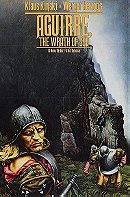
 871
871
 8.2
8.2
 7.8
7.8
